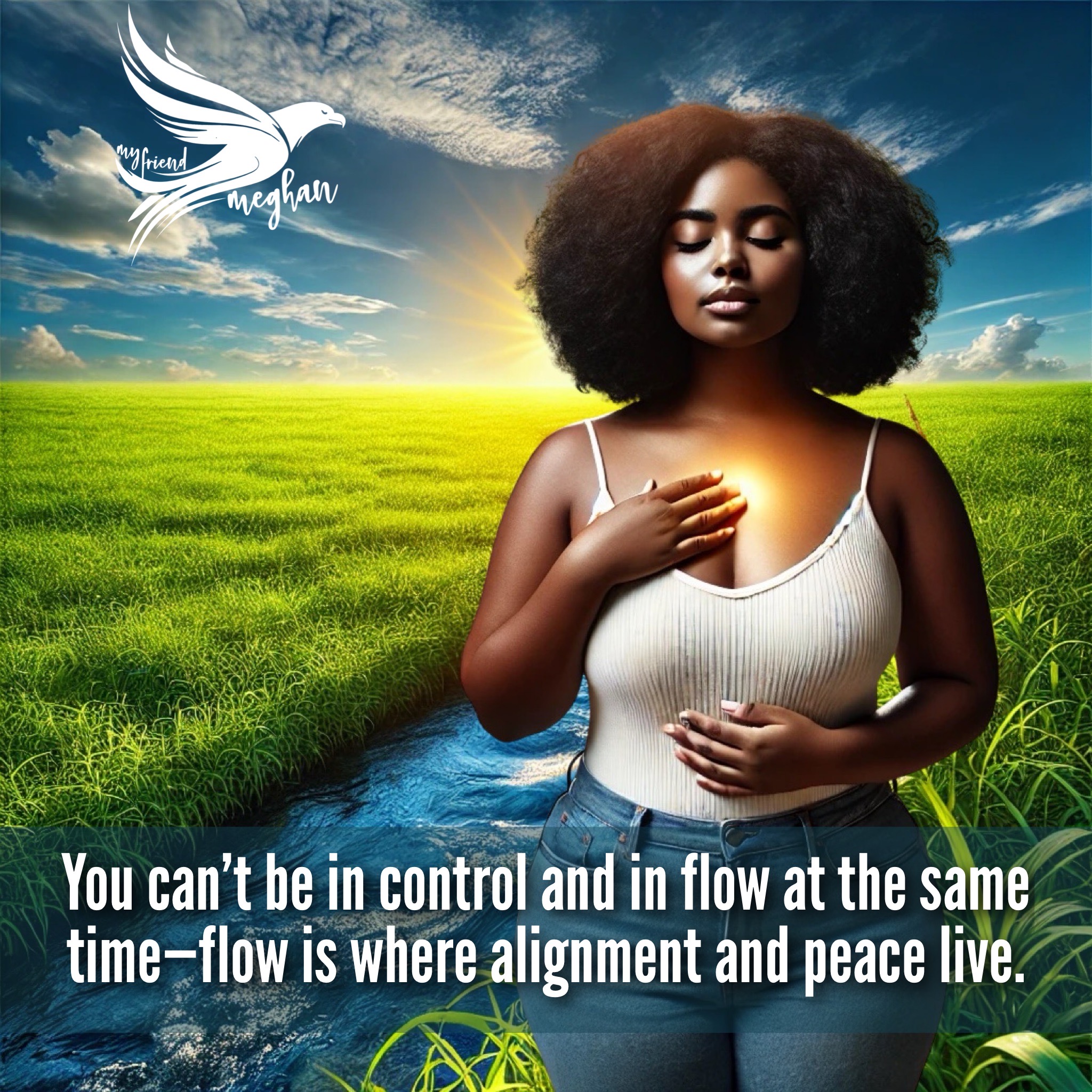There’s a quiet kind of tension that arises when we try to orchestrate every part of our lives—or worse, every part of someone else’s. Whether we’re over-managing our own path or subtly attempting to nudge someone else’s in the direction we think is best, the result is the same: disconnection from peace, from presence, and from personal power. The harder we grip, the more flow eludes us.
The truth is, control is an illusion—especially when it extends beyond our sphere of influence. And the more energy we spend chasing control, the less available we are for alignment, insight, and empowered action.
Your Energy Is Yours to Steward
At the heart of this principle is a deep respect for personal sovereignty—both yours and others’. This has to do with healthy boundaries. You are the only one responsible for your own energy, choices, and responses. And by the same token, other people are responsible for theirs.
Trying to shape how someone perceives you, influence how they respond, or manage how they move through their journey is a subtle (or not-so-subtle) overstep. It creates tension, not connection. We may tell ourselves we’re helping, but often we’re just trying to feel safer by managing an outcome. And that safety is always temporary because it isn’t rooted in truth—it’s rooted in fear.
This is where “good intention” breaks healthy boundaries and disrespects personal sovereignty. Real freedom comes from letting people go on their own paths—even when we don’t understand or agree with them.
Letting Go of Outcomes Creates Space for Peace
Control thrives on “shoulds”—it tells us we should be further along, or they should know better, or things should have gone differently. But the more we cling to these imagined timelines or expectations, the more we disconnect from the wisdom of what is.
Releasing control doesn’t mean giving up. It means shifting our focus from forcing outcomes to aligning with truth. Whether this is embracing your own personal sovereignty or honoring someone else’s. It means loosening our grip and allowing space for divine timing to unfold in ways that our current perspective may not yet understand.
True empowerment comes not from making things happen, but from attuning to what is already ready to emerge.
Flow Requires Trust
You cannot enter a state of empowered flow while simultaneously trying to micromanage your experience or others’ reactions. Flow invites trust. It asks you to remain open, curious, and present—to maintain an expectation of good and to filter what comes as being for you. It asks you to tune in, rather than tighten up.
This is the foundation of Elevated Thought: understanding that energy moves best when we are in harmony with it, not in resistance to it. And resistance is exactly what control creates.
If we want to walk in alignment, to feel that click of right-place-right-time, we have to allow room for mystery. For other people to take their detours. For ourselves to learn through our own timing. We have to step out of the role of director and into the role of participant—awake, responsive, and willing to surrender what we think should happen in favor of what is actually unfolding.
Control Is Not Safety
At its root, the desire to control often stems from fear: fear of pain, fear of loss, fear of being misunderstood or abandoned. But controlling others doesn’t protect us from those things—it merely creates more friction, more disconnection, and often, more pain.
The irony is, we find real safety when we let go. Because letting go returns us to what’s actually ours: our own internal clarity, our sense of self, and our connection to the divine intelligence within. And when we are anchored in that, external circumstances lose their power to rattle us.
Releasing the illusion of control brings us back to what’s real: our energy, our choices, our presence. It’s not just a path to personal peace—it’s a foundational element of Empowered Communications. Because when we stop trying to control what isn’t ours, we create space for authenticity, connection, and trust to thrive. That’s where empowerment begins.
Actionable Insights
- Stay in your own sphere of influence. Before reacting or intervening, ask: Is this mine to manage? Or am I trying to control something beyond my influence?
- Release the need to be understood. Can you honor your truth without asking others to validate it? Without needing their agreement or approval, can you simply own what’s true for you—and let that be enough?
- Resist the urge to fix—focus on being a witness. Instead of striving to alter someone else’s path, can you hold space for their journey with compassion and respect?
- Align with flow, not force. When something feels hard or stuck, consider: Am I gripping too tightly? Where can I release control and trust the timing?
Releasing the Illusion of Control is the 5th of the 13 Keys for Empowered Communication.
The 13 Keys are:
- You Are Responsible for the Energy You Bring
- Power vs. Force
- Energy as Currency
- Healthy Boundaries and Letting Go
- Release the Illusion of Control
- Release and Transmute Energy
- The Role of Forgiveness in Energy Release
- Know Your Own Weaknesses
- The Importance of Self-Validation
- Thought Patterns Shape Reality
- Manifestation and Mental Focus
- Trust the Timing of Others’ Journeys
- The Art of Non-Reaction


Leave a Reply